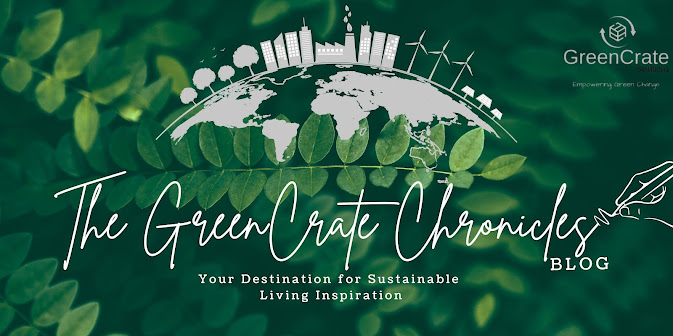Global Plastic Pollution Treaty: Progress or Posturing?
Plastic pollution is a planetary crisis. With over 300 million tons of plastic produced annually, only a fraction is recycled, leaving the rest to choke oceans, litter landscapes and infiltrate ecosystems. This crisis disproportionately affects developing nations, where waste management infrastructure is often inadequate. To address this, the United Nations initiated the Intergovernmental Negotiating Committee (INC), tasked with creating a global treaty to combat plastic pollution. The INC-5 meeting in Busan, South Korea, was expected to be a turning point. Instead, it left the world questioning whether meaningful progress is possible.
This article critically examines the INC-5 meeting, its outcomes and its implications. We’ll also explore comparisons to the Conference of the Parties (COP) climate negotiations, questioning whether these international forums serve their purpose or perpetuate inequality and inaction. Who benefits from these initiatives? Will governments and corporations step up? And most critically, will the treaty deliver justice for the poorer nations bearing the brunt of the plastic crisis?
Section 1: The INC Process – Purpose and Challenges
What is the INC? The Intergovernmental Negotiating Committee was established by the United Nations Environment Assembly (UNEA) in 2022 to create a legally binding global treaty addressing the full lifecycle of plastics. Its mandate includes:
Reducing plastic production and consumption.
Improving waste management systems.
Preventing plastic waste from entering the environment.
Promoting sustainable alternatives.
Why INC Matters Plastic pollution is not just an environmental issue but a social and economic one. Microplastics contaminate drinking water, agricultural soil and even human blood. Developing nations, often used as dumping grounds for plastic waste, face disproportionate health and environmental risks. A global treaty could standardize efforts, hold polluters accountable and provide financial and technical support to vulnerable countries.
The Roadblocks Despite its noble goals, the INC process faces significant challenges:
Divergent Priorities: Developing nations demand financial support and equitable responsibility, while richer countries prioritize voluntary measures.
Corporate Influence: The powerful plastic industry resists binding commitments that threaten profits.
Lack of Consensus: Disagreements over legally binding targets and enforcement mechanisms stall progress.
Section 2: INC-5 in Busan – A Missed Opportunity?
Expectations for INC-5 The Busan meeting was meant to finalize a draft treaty, setting clear targets and mechanisms for implementation. Delegates from 177 countries gathered with hopes of bridging divides and achieving consensus.
Key Issues Debated
Financial Support: Developing nations argued for a dedicated fund to support waste management and alternative technologies.
Binding vs. Voluntary Measures: Should commitments be legally binding or left to national discretion?
Corporate Accountability: How to hold producers responsible for plastic waste?
Outcomes The meeting ended without a finalized treaty. Instead, a draft text was adopted as a basis for future negotiations. Key unresolved issues included:
Binding commitments: Major plastic-producing nations resisted enforceable targets.
Funding mechanisms: No agreement on financial support for developing countries.
Timelines: Delays in setting deadlines for action.
Critical Questions
Will this treaty ever materialize? The slow pace raises doubts about its feasibility.
Who will enforce it? Without accountability mechanisms, commitments may remain empty promises.
Who benefits? Will the treaty serve vulnerable nations or protect corporate interests?
Section 3: COP and INC – Parallel Failures?
The COP Experience The Conference of the Parties (COP) meetings under the UN Framework Convention on Climate Change (UNFCCC) have faced similar criticisms. Despite decades of negotiations, global emissions continue to rise and the 1.5°C target set in the Paris Agreement remains elusive.
Comparative Analysis
Corporate Influence: Both INC and COP face lobbying from industries resistant to change.
Inequity: Developing nations demand financial support and technology transfers, often receiving vague promises instead of actionable commitments.
Accountability: Neither process has robust mechanisms to enforce compliance.
Lessons from COP The failures of COP highlight the risks for INC:
Over-reliance on voluntary measures.
Lack of urgency in implementation.
Failure to address systemic inequalities.
Section 4: The Role of Governments and Corporations
Governments: Leaders or Laggards? National governments play a pivotal role in treaty negotiations. However, their actions often reflect domestic political and economic pressures rather than global solidarity.
Rich Nations: Prioritize protecting industries and minimizing financial commitments.
Developing Nations: Demand justice but lack the bargaining power to secure it.
Corporations: Partners or Perpetrators? The plastic industry’s influence is undeniable. From lobbying to greenwashing, corporations often undermine ambitious targets.
Extended Producer Responsibility (EPR): While EPR schemes hold promise, implementation is inconsistent and often voluntary.
Innovation vs. Profit: Sustainable alternatives exist but face resistance due to cost implications.
Section 5: The Future of Global Plastic Governance
Will This Happen? The treaty’s success hinges on:
Political Will: Governments must prioritize long-term environmental health over short-term economic gains.
Public Pressure: Citizen advocacy can push leaders to act decisively.
Global Solidarity: Bridging the North-South divide is essential for equitable outcomes.
When Will This Happen? Delays in negotiations risk exacerbating the crisis. A finalized treaty by 2025 is the stated goal, but the timeline remains uncertain.
Who Will Make This Happen? Leadership must come from all sectors:
Governments: Enforce binding commitments.
Corporations: Innovate and adopt sustainable practices.
Civil Society: Hold stakeholders accountable.
Who Benefits? The treaty must prioritize:
Developing Nations: Provide financial and technical support.
Marginalized Communities: Address the disproportionate impacts of plastic pollution.
Future Generations: Ensure a sustainable and equitable planet.
Will Governments and Corporations Come to the Party? History suggests skepticism is warranted. However, growing public awareness and activism could force change.
Conclusion: Progress or Posturing?
The INC-5 meeting in Busan, like the COP meetings before it, highlights the challenges of global governance in addressing environmental crises. While these forums provide a platform for dialogue, their effectiveness is undermined by corporate influence, inequity and a lack of accountability.
The world needs more than promises. It needs action. The question remains: will the global community rise to the occasion, or will the INC and COP become symbols of missed opportunities? The answer lies in the hands of governments, corporations and citizens. Only time will tell if they choose to act decisively or continue to delay while the planet suffers.








Comments
Post a Comment